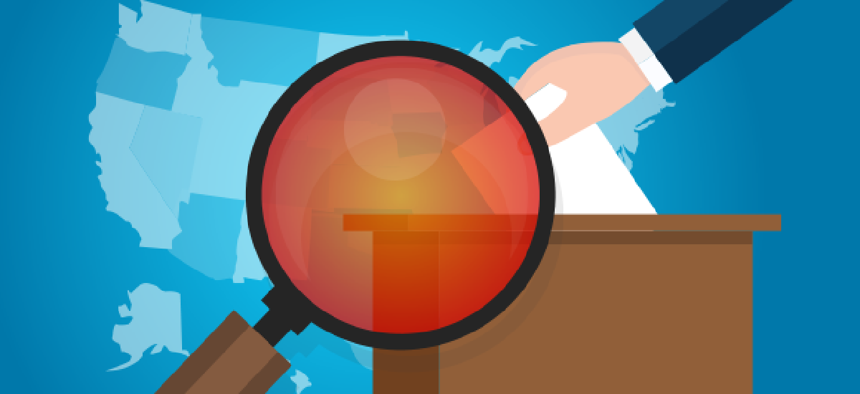ODNI creates new position dedicated to election security

Director of National Intelligence Dan Coats named Shelby Pierson as the first official who will formally oversee election security efforts for the U.S. intelligence community.

The Office of the Director of National Intelligence is creating a new position that will be dedicated to overseeing and coordinating election security efforts across the broader intelligence community.
Director of National Intelligence Dan Coats named Shelby Pierson, a veteran intelligence professional who has held a number of roles across different agencies over the past two decades, as the first intelligence community election threats executive.
“In order to build on our successful approach to the 2018 elections, the IC must properly align its resources to bring the strongest level of support to this critical issue,” Coats said in a statement. “There is no one more qualified to serve as the very first Election Threats Executive than Shelby Pierson.”
According to the statement, Pierson served as crisis manager for election security during the 2018 election and has “over twenty years of service in the IC.” Last year, Pierson -- then the National Intelligence Manager for Russia, Europe and Eurasia at ODNI -- was one of seven executive branch representatives who gave a classified briefing to the House Oversight and Government Reform Committee on election security threats leading up to the 2018 mid-terms.
In conjunction with the new position, ODNI also announced the establishment of a new Election Executive and Leadership Board, chaired by Pierson and staffed with representatives from across the intelligence community and other federal agencies, that will coordinate on election security efforts. Coats ordered all relevant intelligence agencies to designate a senior-executive to lead the effort.
The new position comes after a 2018 mid-term election cycle that seemingly faced a lower volume of threats to election infrastructure, though Coats and other leaders warned in October 2018 that Russia, China, Iran and other “foreign actors” were conducting ongoing influence campaigns to undermine confidence in U.S. institutions and possibly alter voter perceptions. Four months later, many of those same agencies followed up to say there was no evidence those efforts had a material impact on the integrity or security of election or campaign infrastructure during the cycle.
The Trump administration issued an executive order last year establishing a multi-step interagency process to investigate whether foreign governments were involved in interference or influence efforts following an election. If the intelligence community, along with the Department of Homeland Security and others, were to uncover evidence of such efforts, it would trigger automatic sanctions on the offending groups and countries identified.
While officials are calling 2018 a success, they have also noted that non-presidential elections do not offer the same potential gains for foreign adversaries as a presidential election, and officials like FBI Director Christopher Wray have warned that 2018 was likely just “a dress rehearsal” for a more-active 2020 cycle.


